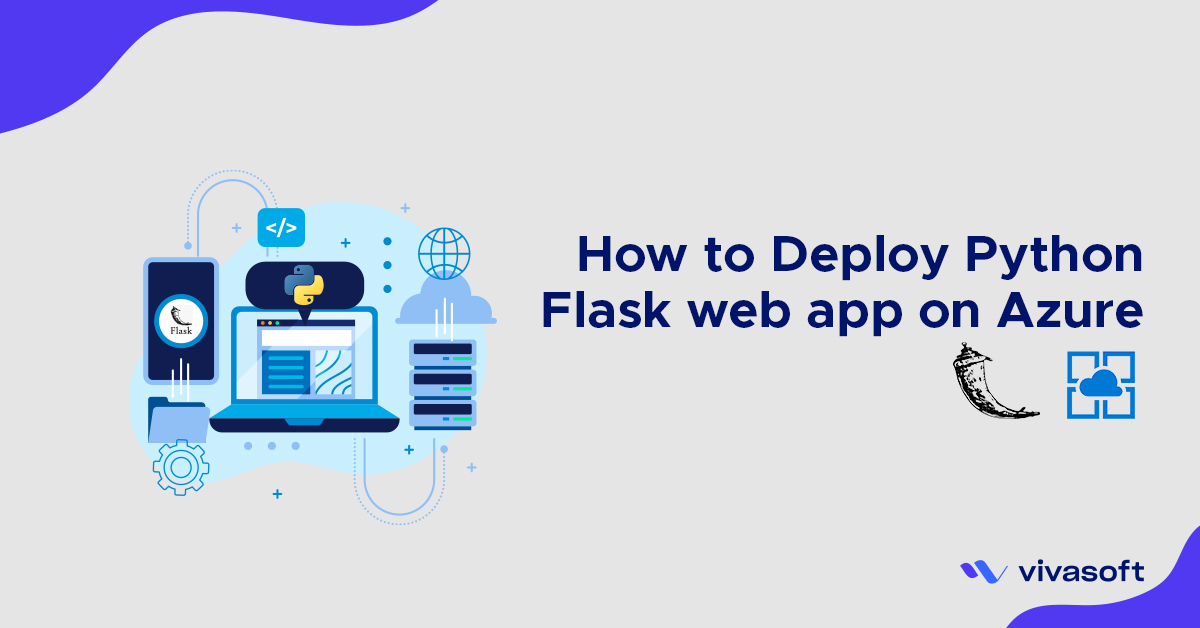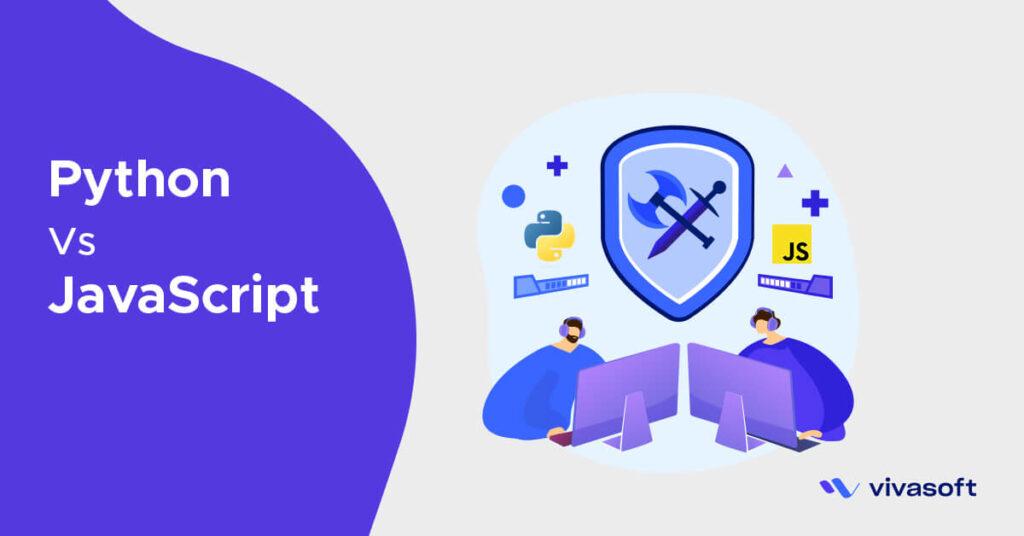Deploy your Flask web app with unparalleled ease, thanks to Azure App Service. Whether you’re looking to deploy your Flask project or deploy a Python-based web app, Azure App Service provides a hassle-free platform that simplifies the entire process.
In this article, we will explain how Azure App Service can enhance and simplify the deployment of your Flask application.
What is Flask Python
Flask stands as a web framework, serving as a Python module that greatly simplifies the process of developing web applications. What sets Flask apart is its compact and highly extensible core.
It adheres to the principles of a microframework, meaning it doesn’t come bundled with complex features like an Object Relational Manager (ORM) but can efficiently work with external ORM libraries if required.
Flask’s origins trace back to the ingenious work of Armin Ronacher, who spearheaded a global team of Python enthusiasts known as Poocco.
What is Azure App Service
Azure App Service is an HTTP-based platform that offers versatile hosting capabilities for web applications, REST APIs, and mobile backends across a spectrum of programming languages, including .NET, .NET Core, Java, Node.js, PHP, and Python, running seamlessly on both Windows and Linux environments.
It harnesses the strengths of Microsoft Azure, incorporating robust features like security, load balancing, autoscaling, and automated management.
It also aids DevOps practices such as continuous deployment from various sources, package management, staging environments, custom domain integration, and TLS/SSL certificate support.
App Service’s cost-efficiency ensures that you only pay for the Azure compute resources your application consumes.
How to Deploy Flask Web App on Azure
To follow along with this tutorial, you need to consider some prerequisites to deploy your Flask web app or to deploy a Python-based web app using Azure App Service.
Prerequisites
- You’ll need an active Azure account to deploy your Flask web app or to deploy a Python-based web app. You can sign up for a free trial account or opt for a paid subscription based on your requirements.
- Make sure you have Python 3.9 or higher installed locally to deploy a Python-based web app.
- You should have a GitHub account.
- To host your application in Azure, you need to create an Azure App Service web app in Azure. You can create a web app using Azure portal, VS Code, Azure Tools extension pack, or Azure CLI.
- For this tutorial, you will use Visual Studio Code(VS Code).
Step-1: Prepare Your Flask Application
- Clone your web app repository from GitHub:
git clone https://github.com/YourUsername/YourWebAppRepository.git
- Navigate to your web app’s folder:
cd YourWebAppRepository
- Create a virtual environment for your application (For macOS or Linux):
- (For macOS or Linux)
python3 -m venv .venv
- (For Windows)
python -m venv .venv
- Activate the virtual environment:
- (For macOS or Linux)
source .venv/bin/activate
- (For Windows)
.venv\Scripts\activate
- Install dependencies for your flask app:
- Specify required packages in a txt file:
Flask==2.0.1
requests>=2.25.1
pandas<=1.3.0
gunicorn==20.1.0 #You can specify the version you want
# Additional libraries
numpy==1.21.0
matplotlib==3.4.2
- Install dependencies from requirements.txt:
pip install -r requirements.txt
- Run your web app locally:
flask run
- Access your application locally by opening a web browser and visiting http://localhost:5000.
Step 2: Create a Web App in Azure
- To create Azure resources in VS Code, you must have the Azure Tools extension pack installed and be signed in to Azure from VS Code.
- Locate and click the Azure icon in the left-hand toolbar of Visual Studio Code. This will bring up the Azure Tools for VS Code extension.
- If you don’t see the Azure Tools icon, ensure you have the Azure Tools extension for VS Code installed.
- In the Azure Tools extension for VS Code:
- Find the RESOURCES section and select your Azure subscription.
- Select the “+” symbol (Create Resource…).
- Choose the “Create App Service Web App…” option.
- Enter a unique name for your web app, e.g., “your-web-app-name-XYZ” where XYZ represents any three unique characters.
This name will be used as your app’s URL in the form: https://<app-name>.azurewebsites.net.
- Select the runtime stack for your application, e.g., Python 3.9.
- Choose the App Service plan (pricing tier) for your web app. This plan determines the available resources (CPU/memory) and cost. For better performance, select the Basic (B1) pricing tier, which incurs a small charge but is recommended over the Free (F1) tier.
- Select the “Deploy” button in the “Created new web app” notification.
- Select the project folder you are working in as the one to deploy.
- When prompted, answer “Yes” to update your build configuration and improve deployment performance.
- Once the deployment is complete, you will receive a notification in the lower right corner of Visual Studio Code. You can use this notification to browse to your deployed web app.
Step 3: Browse to the Deployed Application
Browse your deployed web application in your web browser using the URL format http://<app-name>.azurewebsites.net.
Note: If you encounter a default app page, wait for a minute and refresh the browser.
Your Python web app should be running on Azure App Service, utilizing a Linux container with a built-in image.
In order to view streaming logs, you need to enable this feature in Azure App Service.
In case of Visual Studio Code, navigate to the Azure Tools for VS Code extension, right-click on your App Service instance, and select “Start Streaming Logs” from the menu.
Tips and Tricks to Deploy Your Flask Web Apps on Azure App Service
Deploying your Flask web app on Azure App Service is just the beginning of your Flask application’s journey. To ensure smooth Flask operation, optimal Flask performance, and efficient Flask maintenance, it’s essential to follow best practices throughout the Flask deployment process. Here are some practical tips and best practices to help you navigate this Flask journey:
Performance Optimization:
- Consider using Gunicorn as your Flask application server.
- Implement Flask caching mechanisms to improve Flask response times.
- Explore Azure CDN for serving Flask static assets efficiently.
Code Structure and Organization:
- Modularize your Flask code using Flask blueprints.
- Store Flask configuration settings in separate files or Flask environment variables.
- Use Flask database migration tools for Flask schema changes.
- Implement comprehensive Flask logging.
Debugging Techniques:
- Debug your Flask application locally using tools like Visual Studio Code.
- Implement robust Flask error handling and clear Flask error messages.
- Configure diagnostic Flask logging in Azure App Service for production Flask debugging.
Scaling and Resource Management:
- Understand scaling options and choose the right Flask strategy.
- Continuously monitor Flask resource utilization and set up Flask alerts.
Backup and Recovery:
- Implement a data backup strategy for your Flask application.
- Develop a disaster recovery plan for your Flask app.
By following these Flask steps and best practices, you can successfully deploy and maintain your Flask web app on Azure App Service, ensuring optimal Flask performance and Flask reliability.
Ensuring Secure Hosting on Azure App Service for Flask Web Apps
When deploying Flask web apps on Azure App Service, prioritizing Flask security is paramount. Azure App Service provides a robust array of security features and practices for hosting Flask web apps securely.
HTTPS Support: Encrypts data in transit, safeguarding sensitive Flask user information.
Authentication: Integrates with Azure AD for role-based access control and supports popular identity providers for Flask.
Web Application Firewall (WAF): Protects against common Flask web vulnerabilities and attacks.
Network Security: Controls Flask traffic with network security groups and virtual network service endpoints.
Identity and Access Management: Assigns roles and permissions, reducing the risk of unauthorized Flask access.
Security Monitoring: Azure Monitor and Azure Security Center ensure continuous Flask threat monitoring and auditing.
Compliance: Complies with ISO 27001, SOC 2, PCI DSS, and other industry standards for Flask web apps.
These Flask features collectively fortify Flask web apps on Azure App Service, allowing Flask developers to focus on building while Azure handles Flask infrastructure security.
Hire Python Developers from Vivasoft
If you are considering hiring Python developers, you might want to explore Vivasoft as a potential option. We have a team of skilled Python developers who possess in-depth knowledge of Python frameworks and have a keen understanding of industry best practices.
Contact us to get proficient Python development services and create optimized applications for your next project.
Final Thoughts
Deploying your Flask web app on Azure App Service is a seamless process that can be achieved in just three simple steps. Azure App Service provides a robust platform for hosting your Python-based web applications, offering ease of use and scalability.
Once your web app is up and running, you may find the need to augment your development team with dedicated Python developers.
Python development offers a wealth of benefits, including access to experts with profound expertise in Python, framework versatility, cost efficiency, and scalability.




















